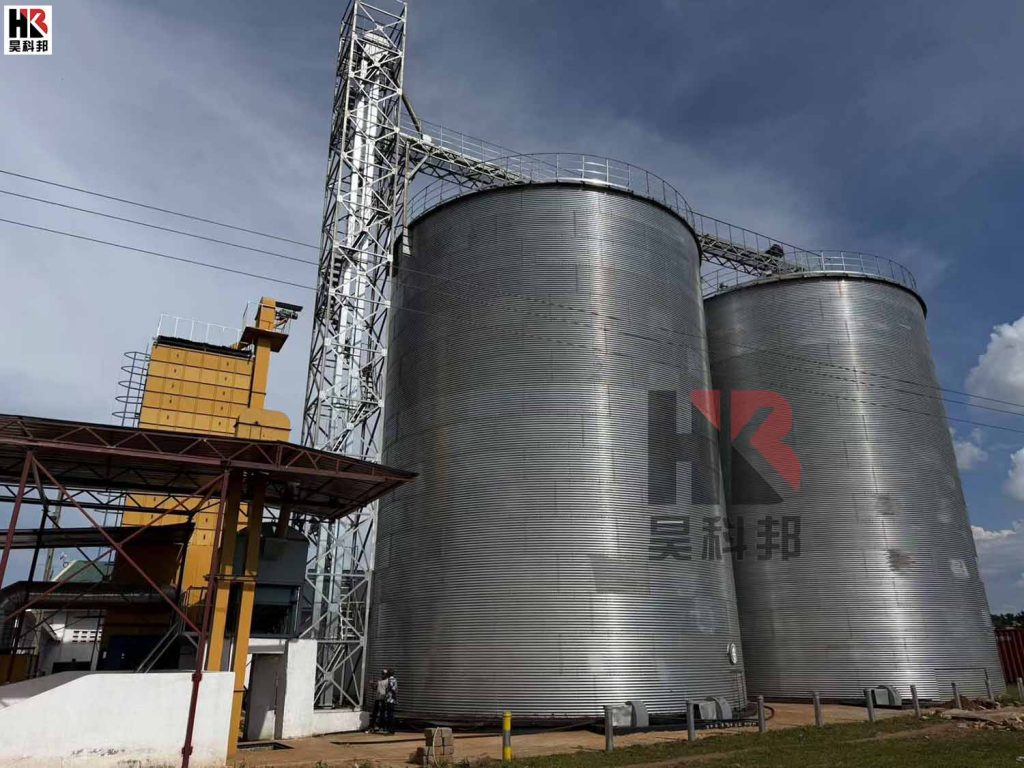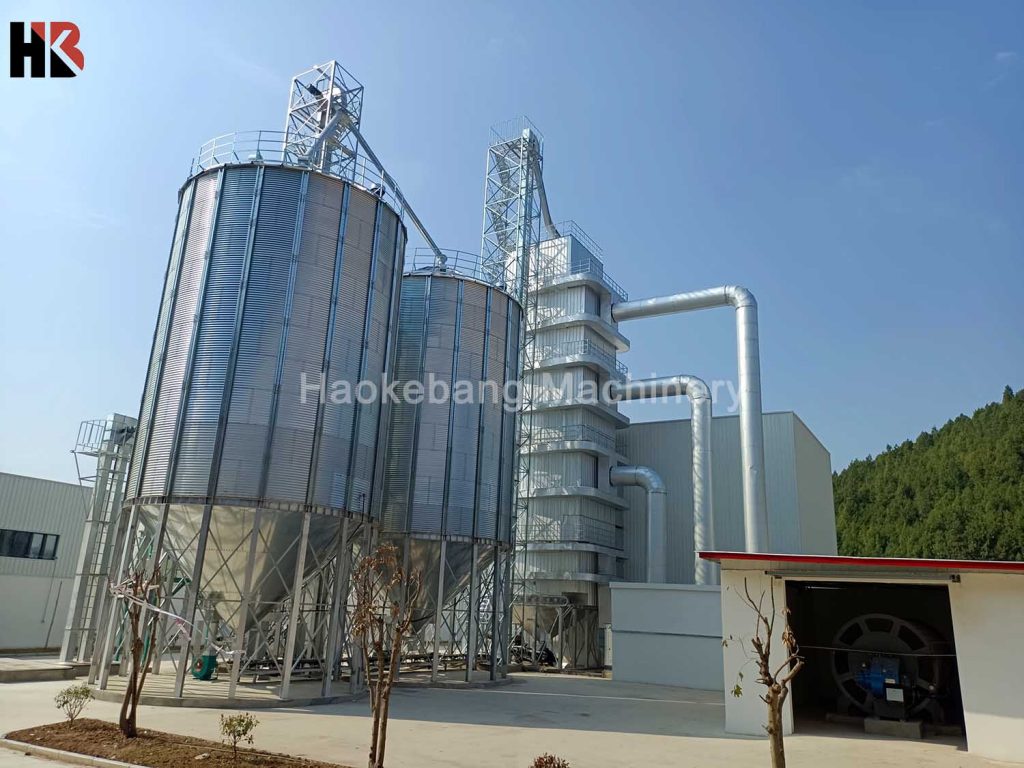Flat - bottom silos and cone - bottom silos, as the two main types of grain silo, precisely meet different needs with their distinct technical features.

Flat - bottom silos, with their flat base design, greatly reduce construction complexity and time, making them a preferred types of grain silo for medium - and large - scale grain enterprises. Their core advantages include:
Cost - saving construction: No complex foundation treatment needed. Steel or concrete silos can be quickly installed.
High space - utilization: Flexible silo combinations meet storage needs from 500 to 5000 tons.
Automated grain - handling: Paired with screw conveyors or scrapers for efficient operations.
Traditional flat - bottom silos, with no slope at the bottom, rely on manual labor or auxiliary equipment for cleaning. However, the new - generation technology has been optimized:
Intelligent monitoring system: Real - time grain - pile status monitoring via sensors at the bottom of the silo, with early warnings for clumping risks.
Modular cleaning equipment: Detachable grain - suction devices reduce manual cleaning frequency and cut maintenance costs by 40%.

Cone - bottom silos, with a conical base design (angle 45° - 60°), enable gravity - driven grain flow. They are a core types of grain silo for bulk grains like corn and wheat. Their core value lies in:
Increased discharge efficiency: Natural grain flow shortens single - silo emptying time to 1/3 of traditional silos.
Residue control: Optimized cone angle design keeps bottom residue rate below 0.5%, reducing grain loss.
Scalability: Ten - thousand - ton - capacity silo clusters can be connected to processing lines for seamless integration.
Targeting the potential blockage risks in cone - bottom silos, continuous technological innovation is applied:
Dynamic flow - control system: Grain - flow speed regulation via cone - base vibrators to prevent blockages.
Environment - friendly silo - wall coating: Food - grade nano - materials lower the friction coefficient and extend equipment life.r grain security line at a lower cost and higher efficiency.fans have a failure rate six times higher than dedicated equipment, posing explosion risks.